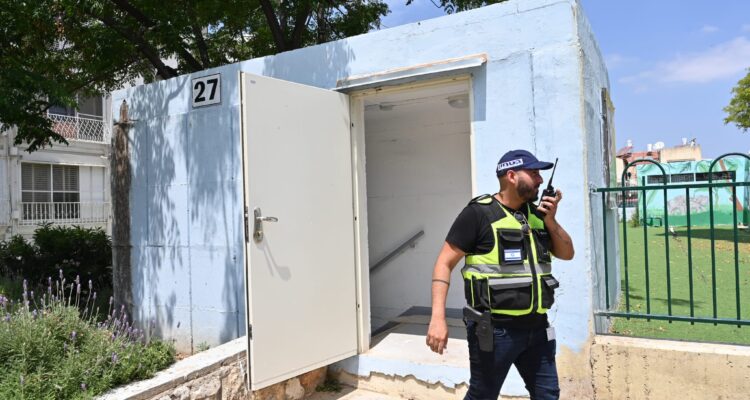The warning notification will be immediately displayed on mobile phone screens, accompanied by a loud ringtone.
By JNS
The Israel Defense Forces’ Home Front Command on Sunday unveiled a new technology to warn civilians in the case of a large-scale national emergency, similar to the U.S. Wireless Emergency Alerts system.
The “personal message” alert technology, which was announced amid Iranian threats to strike Israel, allows the army to notify all cell phones in a specific area without the need for any action on citizens’ part.
The warning notification will be immediately displayed on mobile phone screens, accompanied by a loud ringtone.
פיקוד העורף השיק היום את ׳מסר אישי׳, יכולת להעברת הודעות התגוננות באירועי חירום רחבי הקף ישירות לטלפונים ניידים. זאת, ללא צורך בביצוע כל פעולה מצד האזרח.
בעת קבלת התרעה יש לפעול על פי הנחיות פיקוד העורף, זה מציל חיים. pic.twitter.com/A8MluSrzPz— פיקוד העורף (@PikudHaoref1) August 4, 2024
The so-called Cell Broadcast technology is “intended for use in large-scale emergencies, subject to the operational consideration of the Home Front Command, and is not a substitute for the Home Front Command application or the audible warning,” the army said in its announcement.
The system is “recognized as an international standard and enables the distribution of messages to many subscribers in one area at the same time,” for instance during a large-scale missile attack, the IDF added.
IDF Spokesperson Rear Adm. Daniel Hagari in televised remarks on Sunday night told reporters that, despite the threat of war, there have been no changes to the Home Front Command guidelines for citizens.
“We strive to give you the necessary warning to prepare for any threat,” the spokesman said, adding: “I emphasize that, as of now, there is no change in the Home Front Command’s defensive policy.”
Hagari said the IDF remains “at a high level of readiness, in defense in the air, at sea and on the ground. We are readying for any sudden threat.”
He also said that the country’s air defenses are effective but “not hermetic,” urging the public to remain vigilant and abide by guidelines.
Iranian Supreme Leader Ali Khamenei has ordered an attack on the Jewish state following the alleged Israeli assassination of Hamas leader Ismail Haniyeh in Tehran, The New York Times reported last week.
Jerusalem has also been awaiting the response of Iran’s terrorist proxies since it killed Hezbollah’s Fuad Shukr in Beirut on July 30.
Shukr was responsible for a recent rocket attack that killed 12 children in the Golan, as well as the 1983 bombing that killed more than 300 U.S. and French troops in Beirut.
U.S. officials believe Iran’s anticipated assault on Israel could be “larger and more complicated” than the one launched by Tehran in April, and could involve a coordinated effort by its proxies in the region, CNN reported on Friday.




